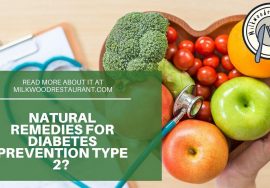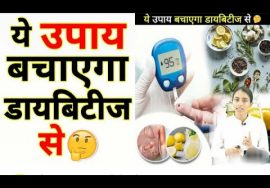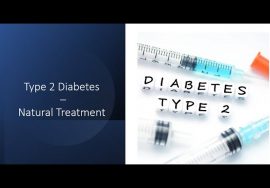Low Carb diets and ketosis; is it dangerous like diabetic ketoacidosis?
Want to learn one of the basics of heart attack & stroke prevention… for free? Get free access to the CV inflammation course by completing this form: .
Learn how to predict & prevent heart attack & stroke:
.
Learn how to reduce & reverse arterial plaque:
.
—
ABOUT DR. BREWER
Dr. Brewer started as an Emergency Doctor. After seeing too many preventable heart attacks, he went to Johns Hopkins to learn Preventive Medicine. While there, he went on the run the post-graduate training program (residency) in Preventive Medicine. From there, he made a career of practicing and managing preventive medicine and primary care clinics. His later role in this area was Chief Medical Officer for Premise, which has close to 1,000 primary care/prevention clinics. He was also the Chief Medical Officer for MDLIVE, the second largest telemedicine company. More recently, he founded PrevMed, a heart attack, and stroke prevention clinic.
At PrevMed, we focus on heart attack, stroke, and cognitive decline. We serve patients who have already experienced an event as well as those who have not developed a diagnosis or event. Dr. Brewer provides services via telemedicine or in person if you're in the Lexington, KY area. We find a lot of undiagnosed Pre-Diabetes or Insulin Resistance. Treating unrecognized risk factors like Pre-Diabetes allows reduction of risk and prevention of disease.
If you are interested in becoming a patient, please visit our website:
ABOUT THIS VIDEO:
Ketosis is not the same as diabetic ketoacidosis. There are 2 major differences between dietary ketosis: 1. range (dietary ketosis is in a far lower range); and 2. very high blood glucose levels resulting in massive dehydration. Treatments for Diabetic Ketoacidosis include intravenous hydration, insulin and potassium replacement.
Fats are made of triglyceride molecules. Triglycerides are made of glycerin and 3 fatty acids. (Glycerin is a 3 carbon low-glycemic carbohydrate used as a sweetener. )
The liver takes fatty acids and metabolizes them down to ketones and water.












Just watched this today. Thank you. PS the paper charts worked fine if they were easier for you to do. I miss these simple lesson.
Thank you very much! I don’t think we’ll go back to shakey paper. I’ve gone paperless. But here are simpler ways no to get these images and text onto slides.
Few of diabetic (DM) or prediabetic patiens get really good glicemic control, weihgt loss with low carbs/keto diet.
I wouldn’t recomend keto diet when taking SGLT2 inhibitors, because of danger of rare normoglicemic KA.
But what about pancreatogene DM? Or people without DM after pancreatitis episodes, partial pancreactomy etc..
What worries me is possible destruction of cells that produce glucagone.
Is keto safe for them?
Thank you so much for your very informative and useful lectures!
Thanks
Thank you for this interesting lesson. My 1100-page college biology text only has two chapters on chemistry – the first two. I suppose the only hard part for me is deciding which reactions need energy to take place and which ones give up energy. More importantly, what causes some of these reactions to take place at all. Do they simply take place in the presence of the other molecule? Or is another process at work?
The hardest part about the keto diet is convincing my primary doctors and nurses about it without their wondering if they should send me off for a psyche evaluation. Being a scientist, I’m still skeptical about it, myself, even though I’ve read enumerable journal articles, even many from other countries, including China (which could be more credible, since the Chinese government is more technocratic, and less inclined to have ulterior/financial motives), for supporting it. “The proof is in the pudding,” I like to believe, and if I die from being on it, I’ll know for sure if it worked or not.
Although, it was an article in the New England Journal of Medicine, back in the 1960s, that convinced us all to stop eating fatty foods and drink more sugar colas. This was a coup d’etat by the sugar industry, who financed that Harvard research study, which resulted in the deaths of untold hundreds of thousands (perhaps millions) of people, all for a mere $1,600. About 20 years ago (or more), I told everyone in my family to stop eating margarine, and stick to butter, instead (back then, between partially/hydrogenated oils and fat plus high-cholesterol, it was the lesser of two evils).
It’s amazing to me that transfats have survived the FDA and are still allowed in our foods.
Four (diabetic) of my five living sisters (one died of heart disease, associated with diabetes) swear by the keto diet, and even proclaim being able to go off their insulin, as their weight drops (their B/S drops, so they don’t need it). The thing I find far more attractive about it, of course, is that it is more, “sustainable,” than the other diets the VA has put me on. I’ve lost weight on those diets, but you can never keep it off, unless you constantly monitor your caloric intake.
Because heart disease and diabetes run so rampant in my family, I take it pretty seriously, even if my weight is down, I work out or ride a bike every day, I always register some ketosis (below 40 on my chart – above 40 is considered ketoacidosis) I would like to have the test for Lipoprotein (a) and a CAC score. I’ve even shown up at the gym during a 36-hour fast – friends thought I was nuts, but I was loaded with energy (fat), so I had no problems doing it.
How do I convince my (VA) primary, who is undoubtedly using the Framingham score to make these determinations, to let me have these tests? Of course, my primary isn’t a cardiologist, but these days, funding cutbacks at the VA are killing services for disabled vets like myself (they simply don’t have enough doctors).
The VA weight charts will say that I’m in their “healthy” zone, but the little fatty slabs all over the exterior of my torso say otherwise (small, but apparent “love handles”). I consider myself to be, still, about 12 lbs overweight. Some studies suggest that as little as 7 – 10 lbs (inside the torso – there’s a name for this region of the body) is enough to cause problems.
In the past, my VA primaries have deferred to and granted prescriptions from outside VA doctors.
The VA nurses “want to see” BP “for my age” of around 135/80, which I consider ludicrous. I don’t believe age has anything to do with this.
Thanks again for the informative video, and the qualified remarks (“sometimes” and “maybe”). People hate it when I qualify my remarks, but point-blank statements of “fact” force me to question a speaker’s veracity.
Thanks – I’ve heard of him and seen a number of his videos.
Robert Mertens See Butter Bob’s channel. And Dr Zaidi’s. You are correct it’s the “visceral” fat around the organs that causes the problem.
+Robert Mertens It’s a common mistake.
Thank you for your reply, Dr. Brewer. Unfortunately, it’s not just my primary care doctor at the VA, but the entire organization that is the VA, which still embraces the low-fat, low-calorie approach. This diet is unsustainable, to me, since it includes carbs, and still relies on the classical, “food pyramid,” with carbs at he bottom. And, as is apparent to me, after trying the keto diet out, carbs “make you hungry.” So you eat more. And most doctors, including the VA doctors, “blame the patient,” for this, their apparent lack of self-control. They insist that we fight our own body chemistry, and when we don’t, it’s “our fault.”
+Robert Mertens Thanks for the comments. You’ve clearly learned enough about this to know a more than many primary care docs.
Doc, once more, thank you very much for an informative and comprehensive video. Two months ago, I embarked on my new regimen. I have type II diabetes, On March 3rd my A1C was 8.6, April 23rd (7 weeks later) A1C is down to 7.1, in a couple of months my goal is less than 6 and hopefully around 5.5, I am doing this on an 80g of daily carb budget, and 1lb a week weight loss. I have also reduced my intake of meat; particularly red meat. In any event meat perhaps twice a week. Bulk of the intake is vegetables and leafy greens. In addition frequent fasting overnight. I have managed to eliminate Blood pressure medication altogether and reduced basal insulin by 24%. I thought my 80g of carb budget was quite aggressive, boy was I mistaken, you guys are talking about 40 g and 20 g carbs a day. Am I off the mark by so much ?. BTW: I am not experiencing thirsty events at all. Shall I re-adjust my regimen to be more aggressive ?
ds9quark , please let us know how is your HBA1c is doing now? Did you get down the the A1c you wanted.
Thanks. But only you can decide your level of aggression. It does appear you are currently getting improvement.
Dear Dr Brewer your videos based on reliable and critically appraised medical evidence are a blessing in this vast jungle of videos and self proclaimed heath experts. I wish to ask you during dietary ketosis, is there any load on liver as it is the only source of converting fatty acids to ketones. Does it increase chances of fatty liver??
THANK YOU VERY MUCH. AFTER 20 YEARS OF DIABETS WITH FASTING AND KETO REGIME MY HBC WAS 8 DROPED DOWN TO 6. OF INSULINE AND TABLETS. 64 YEARS OLD. THIS IS MY NEW LIFE STYLE WHICH IS PRICLESS.
I am glad to here you’re aware, that you are doing the thing, and that it’s working out.
The ketogenic diet originated at Johns Hopkins to treat seizures that could not be controlled by medication or invasive intervention. It was developed by a neurologist and an RD.
There’s a difference between a mere low carb diet (or one focused primarily on the glycemic index) and the ketogenic diet which purposely incorporates the appropriate types of fat in the diet. The results are different as well, and results will vary given the genetics and epigenetics of the individual. One diet is not the answer for everyone, but a healthy diet, absent as much processed food as possible, mindful of the glycemic index and healthy types of fat (with special attention paid to cooking temperatures for oils, due to oxidative degradation) is healthy for most.
Thanks
Dr. Brewer a study was conducted to determine if a low carb diet would lead to the burning and subsequent loss of body fat. As it turned out (and I don’t have the reference, but I’m sure you know the study), while there was initial success in showing that once the men in the ward were placed on a low carb diet they lost weight and fat more quickly, the actual internal pace at which fat was lost was slowed. This was because while they were burning fat they were also taking in more fat in their diets and so the whole concept of the benefit of the ketogenic diet was found faulty and false. Why do you just show studies that incline listeners to believe that the low carb, lean protein, high (good) fat diet is the one to follow? It seems to me to be proven that that is false.
I don’t think so. Over half of us 30 & over have IR (prediabetes). Why would eating carbs be healthy for someone that cannot metabolize them?
DR. Brewer, maybe I missed something somewhere, but are you not vegan? If so, perhaps you could explain how would a vegan go to keto-diet? Or are you not advocating keto diet but just explaining the facts?
LCHF…… I definitely believe through experience that low carb is very healthy. But what I am unsure about with the Keto diet, is if it is safe (as far as artery plaque) to be consuming “such high amounts” of saturated fats (bacon, butter, marbled meats)? What do you think?
John Lorscheider thank you so much for your reply. That is my main concern CVD and APOE4. I am going to try to get that checked. It sounds like otherwise high fat won’t cause CVD with APOE3. I am so ready to get that test so I will quit worrying so much. Thank you again for responding to me ?
But is a type 1 diabetic at higher risk for keto-acidosis if following a keto diet? I am type 1 and follow a ketogenic diet for 3 months now, but the other day as I was very stressed my blood sugar spiked like crazy and I couldn’t get it down ( from 250 to 350 ) – I was really afraid of ketoacidosis in that situation.
Actually many (maybe most) type 1 diabetics do far better on at least low carb- if not keto- diets. That also is nonstandard – but is incredibly logical. If you cannot metabolize carbs, why is it healthier to consume them? Their insulin requirements plummet while their control improves. If a T1DM gets hyperglycemia while consuming minimal carbs, then it’s from the liver – not from consuming carbs. Low Carb Down Under had some great vids on this recently.
What is your diet on an average day?
Thanks for your interest.
https://youtu.be/H66aO4Q2tkc
https://youtu.be/LrLaL664ZbU
Ford Brewer yes please! Curious what you eat on a typical day. Thanks!
These videos will air within a month.
Thanks for your interest. I did a couple of videos on it recently. It’s ugly- lots of dishes that are “acquired tastes”. And clearly not perfect. For example, maybe I’m destroying much of my isothiocyanates in my veggies by a light saute. Maybe not. Anyway, it’s a vast improvement from my sugar-holic past (30 years ago). And even from my 30 year plant-based diet. It was still too many carbs for someone with IR.
I was convinced that ketosis is a metabolic process of fat burning from own fat cells, not from dietary fatty acids. This process takes place after the burning of glucose reserves from glycogen. I do not want to argue, but I consider that ketosis is a pathological condition. Of course, I allow the possibility that I am wrong. Thanks for explaining the difference between ketosis and ketoacidosis, very informative.
Thanks. I appreciate your open-mindedness. Remember that ketones are the result of burning dat for energy. Our bodies do not burn fat without making ketones.
Is long term,ininterrupted dietary ketosis safe and healthy?
So . . why doesn’t the diabetic cell which is no longer responding to insulin and is having its sugar sucked out of it, just start burning fats?
It acts just like cancer cell whose mitachondria is damaged and can no longer ferment sugar.
Ref.
Prof Seyfreid “Cancer as a Metabolic Disease”
if you’re getting DKA while on keto you’re probably an undiagnosed Type-1
The major difference between ketosis and DKA is one of degree.
I have pcos and have been on metformin for 17 yrs..trying to lose 10 more lbs and have recently added the supplement ovasitol ..it has been helping me w weight loss one lb in a week..i also have the pill form myo inositol and d chiro inositol…my post meal blood sugar has been lower w this supplement..hope it helps you too:)
In another of your video you state that “all cinnamon are the same.” I don’t know how with your scientific knowledge you came to this asinine conclusion. Cassia and Ceylon just to name 2 cinnamons, taste different. The barks when peeled from the trees are different. The medical effects of Cassia in regards to thinning the blood are many times more severe than Ceylon. I have just mentioned 3 major differences. Differences are not found in things that are equal and the same. You must retract that statement otherwise people will never trust you because your claim about cinnamon is pure baloney with not a single fact to support your statement. I hope to see your response.
Antoinette Haboush See Butter Bob’s channel.
+Antoinette Haboush Thank you! I will check it out.
Thanks! I’m officially in ketosis (1.9 – almost deep ketosis) and my blood sugar was 85 (4.7 mmol/L), my lowest ever. Another ketogenic diet success, and I only consume the following animal-based foods (sardines, organic eggs, organic cheese, organic butter); the rest are plant-based. I used to be vegan (two years) and then followed a whole-food plant-based diet (two years) and both didn’t lower my blood sugar. I only consumed plant-based foods for ethical reasons, not for better health. Small fish like sardines are the least polluted and “hopefully” will forgive me. Carbs and gluten are poisons, not foods. Keto is the way to maximize the odds of a good health. Cheers!
Thanks.
@Ford Brewer MD MPH Thanks! I had read some bad reviews about it and it’s pretty expensive, so I’m using the Abbott FreeStyle Precision Neo that checks both blood sugar and ketones (with different strips, of course).
Have you tried Keto Mojo?
https://youtu.be/AKzoNB8Q6dI
@Ford Brewer MD MPH Thanks, Dr. Brewer! And it continues even after meals, which I have twice a day after 16-18 hours of intermittent fasting. I don’t have an elevated blood sugar anymore and my ketones have gone as high as 2.3. Cheers!
Congratulations. As I follow your comments, you seem to be making a lot of progress.